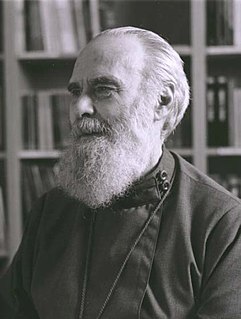A Quote by John F. Kennedy
I do not speak for my church on public matters; and the church does not speak for me.
Related Quotes
It seems to me, and I am personally convinced, that the Church must never speak from a position of strength. [These are shocking words.] It ought not to be one of the forces influencing this or that state. The Church ought to be, if you will, just as powerless as God himself, which does not coerce but which calls and unveils the beauty and the truth of things without imposing them. As soon as the Church begins to exercise power, it loses its most profound characteristic which is divine love [i.e.] the understanding of those it is called to save and not to smash.
It's not necessarily a church theme and it's not really about church. I like my album themes to be metaphors because it gives me the freedom to speak about something else that's going on in my life, so the Born Sinner thing is not about church, it's not even about religion. It's using that as canvas to get other messages across and that's what the album will be.
It does seem to me, though, that there is a difference between the Mormon Church saying, "We don't accept gay people within the Church; we don't accept gay marriage within the Church; we don't accept people who act on their homosexual desires within the Church;" and trying to interfere with what happens outside of the Church. That seemed to me to be an abomination.
A church that does not exist to reclaim heathenism, to fight evil, to destroy error, to put down falsehood, a church that does not exist to take the side of the poor, to denounce injustice and to hold up righteousness, is a church that has no right to be. Not for yourself, O church, do you exist, any more than Christ existed for Himself.
When we struggle for human rights, for freedom, for dignity, when we feel that it is a ministry of the church to concern itself for those who are hungry, for those who have no schools, for those who are deprived, we are not departing from God's promise. He comes to free us from sin, and the church knows that sin's consequences are all such injustices and abuses. The church knows it is saving the world when it undertakes to speak also of such things.
The Bible judges the church; the church does not judge the Bible. The Bible is the foundation for and the creator of the church; the church is not the foundation for or creator of the Bible. The church and its hierarchy must be evaluated by the believer with the biblical gospel as the touchstone or plumb line for judging all truth claims.
































